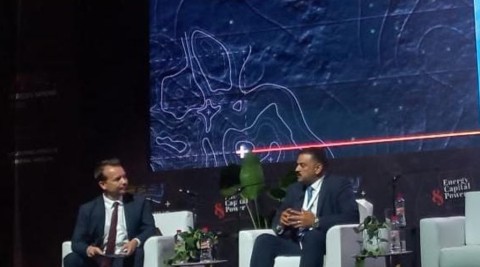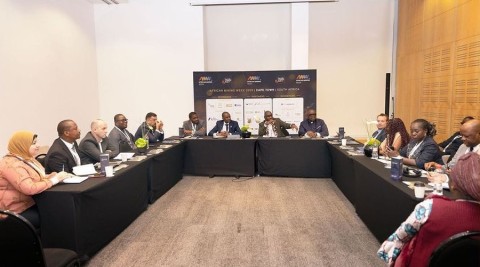Yasser Ramadan, Chairman of the Mineral Resources and Mining Industries Authority, has been actively representing Egypt at key mining events, showing the country’s investment potential and reforms to attract global investors.
The Egypt–China Investment and Innovation Forum
During the second Egypt–China Forum for Investment and Innovation, Ramadan said in his opening speech that mining is a national priority under the Ministry’s six-pillar strategy. This pillar aims to increase the sector’s contribution to GDP from 0.5% to 5–6% by 2030 in line with Egypt’s Vision 2030.
He highlighted Egypt’s mineral wealth, the mineral authority reform, and launch of the new mining portal in 2026 designed to enhance transparency and streamline investor engagement.
Egypt and China have been fostering cooperation in various sectors including the mining sector.
In July, the authority signed a Memorandum of Understanding (MoU) with China’s Asia-Potash International Investment for the exploration and assessment of phosphate ore reserves to maximize their added value.
This aligns with Egypt’s focus to capitalize on its phosphate resources and boost local fertilizers production such as building phosphoric acid production complex at Abu Tartur mine, thereby boosting economic growth.
African Mining Week 2025 in Cape Town
Ramadan also took part in African Mining Week, held in Cape Town, South Africa, last week. He outlined in a panel session some factors that make Egypt a promising destination for mining investment. These included: rich geological minerals, strategic location that connects Africa, Asia, and Europe, infrastructure of 180,00 km roads and numerous ports, and licensing rounds.

He also highlighted Egypt’s skilled workforce, noting that 97% of employees at Sukari Gold Mine, one of the world’s top ten gold mines, are Egyptians.
In addition, in a ministerial roundtable, Ramadan stressed the need for true African integration in mineral exploration and processing. He also called for investment in human capacity to sustain mining industries.
He proposed the creation of a unified African list of rare minerals and industrial strategies to maximize benefits for the continent’s people.

The roundtable, held at Cape Town, was attended mainly by ministers from different African countries, senior officials, and representatives from the private sector. They agreed on a joint roadmap to shift Africa from dependence on raw material exports toward integrated regional value chains and added-value industries.
On the sidelines of the conference, Ramadan met with several international companies and institutions, including B2Gold Corp, to review the latest developments in the Egyptian mining sector and the legislative and regulatory reforms that could further support investment.
He also met with Rand Refinery Limited, a gold mining company, where they discussed mechanisms for establishing gold refineries globally. Moreover, Ramadan sat with Moses Michael Engadu, Secretary General of the Africa Minerals Strategy Group, to discuss the shared objectives and get acquainted with the process to join the entity.




